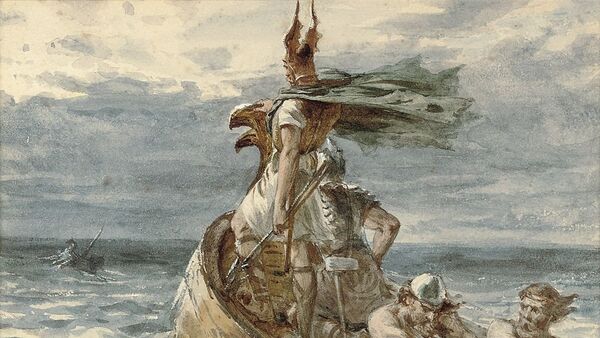Berserker Vikings famed for their frenzy and reckless behaviour during battles fueled themselves with a potent hallucinogen, which made them unable to feel pain and allowed them to lose touch with reality, claims Karsten Fatur, an ethnobotanist from the University of Ljubljana.
The scientist said the elite Viking warriors used a plant called Hyoscyamus niger, commonly known as henbane, which contained two hallucinogens – hyoscyamine and scopolamine that turned them into blood-lust animals.
Mr Karsten alleges that berserkers infused the plant into alcohol, made tea or ointment of it.
"It would have reduced their sensation of pain and made them wild, unpredictable and highly aggressive", he said. "There may also have been dissociative effects, such as losing touch with reality. This might have allowed them to kill indiscriminately without moral qualms."
The scientist dismissed allegations made by researchers in the past, that Vikings could have used Amanita muscaria, a psychoactive mushroom. Fatur agreed that it might have accounted for berserkers' delirium, but noted that the effect would be too mellow.
"Though aggressiveness and hyperactivity may occur, these symptoms are rare and not seen as common markers of A. muscaria poisoning," he said.
The scientist also spoke about the origin of the term "berserker". Fatur said that it originated in Norse mythology, where a hero was called by that name. Other historians claim that it is a mashup of words, which can be translated as "bearskin", a reference to Vikings fighting without armour and wearing only bearskins.
"All that can be said with certainty is that they were elite warriors known for their recklessness", Karsten Fatur said.

